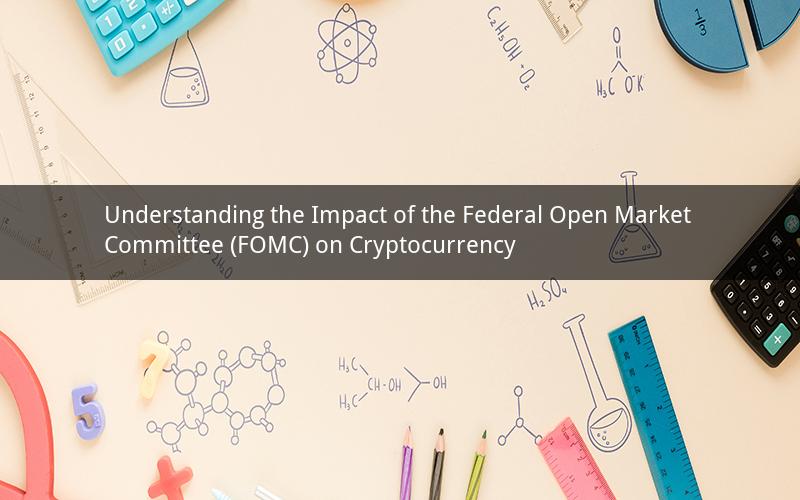
The Federal Open Market Committee (FOMC) plays a crucial role in shaping the monetary policy of the United States. Its decisions regarding interest rates and other monetary tools have a profound impact on various financial markets, including cryptocurrencies. In this article, we will delve into how the FOMC affects the crypto market and discuss the implications of its policies on digital currencies.
1. The Role of the Federal Open Market Committee (FOMC)
The FOMC is a branch of the Federal Reserve System responsible for making monetary policy decisions. It consists of 12 members, including the seven members of the Board of Governors and five Reserve Bank presidents. The committee meets several times a year to discuss and decide on interest rates and other monetary policy tools.
2. How the FOMC Influences Interest Rates
Interest rates are a critical factor in the economy, as they affect borrowing costs, investment decisions, and inflation. The FOMC adjusts interest rates to achieve its dual mandate of maximizing employment and stabilizing prices. Lower interest rates encourage borrowing and spending, while higher interest rates aim to cool down an overheated economy.
3. The Relationship Between Interest Rates and Cryptocurrency
Interest rates have a direct impact on the cryptocurrency market. When the FOMC lowers interest rates, it makes borrowing cheaper, which can lead to increased investment in riskier assets like cryptocurrencies. Conversely, higher interest rates can discourage investors from taking on additional risk, potentially leading to a decline in crypto prices.
4. The FOMC's Policy and Its Effect on Cryptocurrency
a. Lower Interest Rates
When the FOMC lowers interest rates, it often signals that the economy is in a slowdown or recession. This situation can attract investors to cryptocurrencies as a potential hedge against inflation and a source of higher returns. Additionally, lower interest rates can make it more expensive for traditional banks to lend, leading to a shift in capital towards the crypto market.
b. Higher Interest Rates
Conversely, when the FOMC raises interest rates, it indicates that the economy is performing well, which can lead to increased confidence in traditional financial markets. This shift can cause investors to move away from cryptocurrencies, leading to a decrease in their value.
5. The FOMC's Communication Strategy and Cryptocurrency
The FOMC's communication strategy plays a crucial role in its impact on the crypto market. The committee releases statements and economic forecasts that guide investors' expectations. These communications can influence market sentiment and, consequently, cryptocurrency prices.
a. Forward Guidance
Forward guidance is when the FOMC communicates its future policy intentions. This strategy can have a significant impact on the crypto market. For example, if the FOMC signals that it will continue to lower interest rates, it can boost investor confidence in cryptocurrencies. Conversely, if the committee indicates that it plans to raise interest rates, it can lead to a decrease in crypto prices.
b. Economic Projections
The FOMC releases economic projections, including inflation and employment forecasts, which can influence market sentiment. If the projections show strong economic growth, it can lead to higher interest rates and a potential shift away from cryptocurrencies. On the other hand, if the projections indicate a weaker economy, it can lead to lower interest rates and increased investment in crypto assets.
6. The Role of the FOMC in Cryptocurrency Regulation
The FOMC also plays a role in the regulatory landscape of cryptocurrencies. By influencing the overall economic environment, the committee can indirectly affect the regulatory environment for digital currencies. For example, if the FOMC's policies lead to increased economic stability, it may encourage regulators to adopt a more favorable stance towards cryptocurrencies.
7. Conclusion
The Federal Open Market Committee's decisions regarding interest rates and monetary policy have a significant impact on the cryptocurrency market. Lower interest rates can attract investors to digital currencies, while higher interest rates may discourage investment. Additionally, the FOMC's communication strategy and economic projections can influence market sentiment and regulatory policies. Understanding the relationship between the FOMC and cryptocurrency is crucial for investors and market participants to make informed decisions.
Questions and Answers:
1. What is the role of the Federal Open Market Committee (FOMC) in the United States?
Answer: The FOMC is a branch of the Federal Reserve System responsible for making monetary policy decisions, including adjusting interest rates and other monetary tools.
2. How do interest rates affect the cryptocurrency market?
Answer: Lower interest rates can make borrowing cheaper and attract investors to riskier assets like cryptocurrencies, potentially leading to increased investment and higher prices. Conversely, higher interest rates can discourage investment in crypto assets and lead to a decrease in prices.
3. What is the relationship between the FOMC's policy and the value of cryptocurrencies?
Answer: The FOMC's policy, particularly its decisions on interest rates and communication strategy, can influence market sentiment and regulatory policies, which in turn can impact the value of cryptocurrencies.
4. How can the FOMC's forward guidance affect the cryptocurrency market?
Answer: Forward guidance from the FOMC regarding its future policy intentions can influence investor confidence in cryptocurrencies. If the guidance indicates lower interest rates, it can boost investor confidence, while higher interest rates may discourage investment.
5. What is the role of the FOMC in cryptocurrency regulation?
Answer: The FOMC's policies can indirectly affect the regulatory landscape for cryptocurrencies by shaping the overall economic environment. A stable economy may encourage regulators to adopt a more favorable stance towards digital currencies.